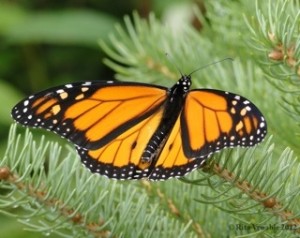
Folks at the Nashville Public Library expected a full house and they got it when Barbara Kingsolver arrived on November 27, 2012 to promote her new book, Flight Behavior (HarperCollins). Her visit was a part of a program of best-selling author talks and book signings sponsored by the Nashville Public Library, Parnassus Books, the Nashville Public Library Foundation, and Humanities Tennessee. Nashville Mayor Karl Dean introduced Kingsolver emphasizing the Tennessee connection. Flight Behavior is set in the mountains of east Tennessee.
She read from the opening chapter of Flight Behavior where the main character, Dellarobia, wants to take flight out of her own mundane existence on a sheep farm in rural Feathertown, Tennessee. What she encounters along a mountain path is life-changing, and readers journey with Dellarobia as she uncovers truths about herself and others. “Fiction is the only place you can go that will take you to the mind of another person,” Kingsolver reminded the audience.

Climate change and Monarchs are the vehicles used to reveal human attitudes toward faith, science, helplessness, hopefulness, poverty, and privilege. Kingsolver imaginatively combines her scientific research and her knowledge of people to tell a story that unfolds as both fable and allegory. After reading a long list of themes for Flight Behavior, Kingsolver paused, looked at the audience and knowingly said, “And that is enough for one book.”
After the reading, the audience asked about her writing life and she explained her “Rules Of Fiction.” Here they are and how they apply to Flight Behavior.
Rule #1: The first sentence of a novel should make a promise that the rest of the book will keep.
Her first sentence of Flight Behavior is:
“A certain feeling comes from throwing your good life away, and it is one part rapture.”
The book promises to examine this statement by asking more questions. What is a good life? What is worth sacrificing it for? Is the “one part rapture” the power of positive change or an escape from life’s present circumstances? What are the other parts of throwing your good life away? Kingsolver keeps asking these questions until the end and beyond.
Rule #2: Delete what doesn’t work. Writing fiction is like weaving. The end ties back to the beginning and the middle has threads of both woven in.
Flight Behavior is like a tapestry with threads of change and responses to change throughout. Scientists, farmers, artists, farm animals, truckers, preachers, plants, school children, wild animals, newcomers and old timers—every living thing must fight, escape, accept, adapt to, or collapse from change.
Rule #3: Make sure everyone knows what you are talking about. Also make sure that you know what you are talking about.
Kingsolver and her husband own a sheep farm in Virginia and her rural upbringing provides insights into human relationships with land. Monarch experts, Drs. Lincoln Brower and Linda Fink, contributed qualified input on Monarch biology and behavior.
Rule #4: Ask a question that hasn’t been asked before.
Flight Behavior questions the realities of both sight and flight by asking: What is seeing? How and why do people see the same event or situation so differently? What is flying? Dellarobia’s friend, Dovey, reminds Dellarobia of when they dreamed of being stewardesses—realizing now that stewardesses end up at the same place they started from without really escaping anything.
Rule #5: Keep readers engaged to the end.
Wondering what will happen to both Dellarobia and the Monarchs keeps readers engaged to the end.
Kingsolver writes both fiction and non-fiction, but at the heart of all her work is a good story. “Stories are nutrients that we all crave,” she said. Flight Behavior delivers the nutrients.
***
In addition…
According to a recent poll by the Associated Press, 4 out of 5 Americans now believe that temperatures are rising and that global warming will be a serious problem for the United States if nothing is done about it (The Tennessean, Dec. 15, 2012).
For a report by the Tennessee Wildlife Resources Agency on how climate change might affect wildlife go to http://www.tn.gov/twra/climate.html
©Rita Venable 2012